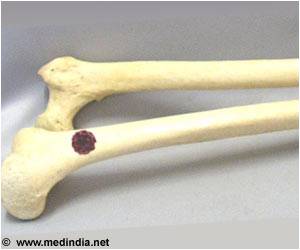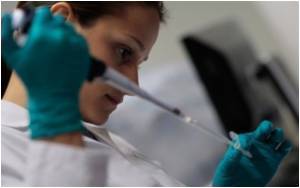Researchers from Uppsala University, Sweden and the Broad Institute says that bone cancer in dogs is affected by a variety of genetic risk factors. The study got published in Genome Biology.

"The key is that we find many different risk factors within each breed. We already knew that greyhounds, Rottweilers and Irish wolfhounds are at increased risk of developing bone cancer and our results explain much of the increased risk", said Emma Ivansson, scientist at SciLifeLab and Uppsala University.
The study demonstrated that each breed has its own risk genes, but these genes converge in common disease mechanisms. Some genes are known cancer genes in humans, while others are completely new discoveries. The researchers also studied one of the risk factors in more detail and found a new regulatory signal that leads to increased gene expression in bone cancer cells from humans.
"Our results show that the pathways involved in bone formation and growth are important for the disease. Because of the great similarities between bone cancer in dogs and humans, we believe that our findings may contribute to an increased understanding of how bone cancer develops in humans", said Kerstin Lindblad-Toh, professor at Uppsala University and Co-Director of the SciLifeLab and Director of Vertebrate Genome Biology at the Broad Institute.
The researchers are continuing to study the identified risk factors to understand more about how they affect tumor development and to see whether different risk factors respond to different types of treatment.
Source-Eurekalert
 MEDINDIA
MEDINDIA




 Email
Email










